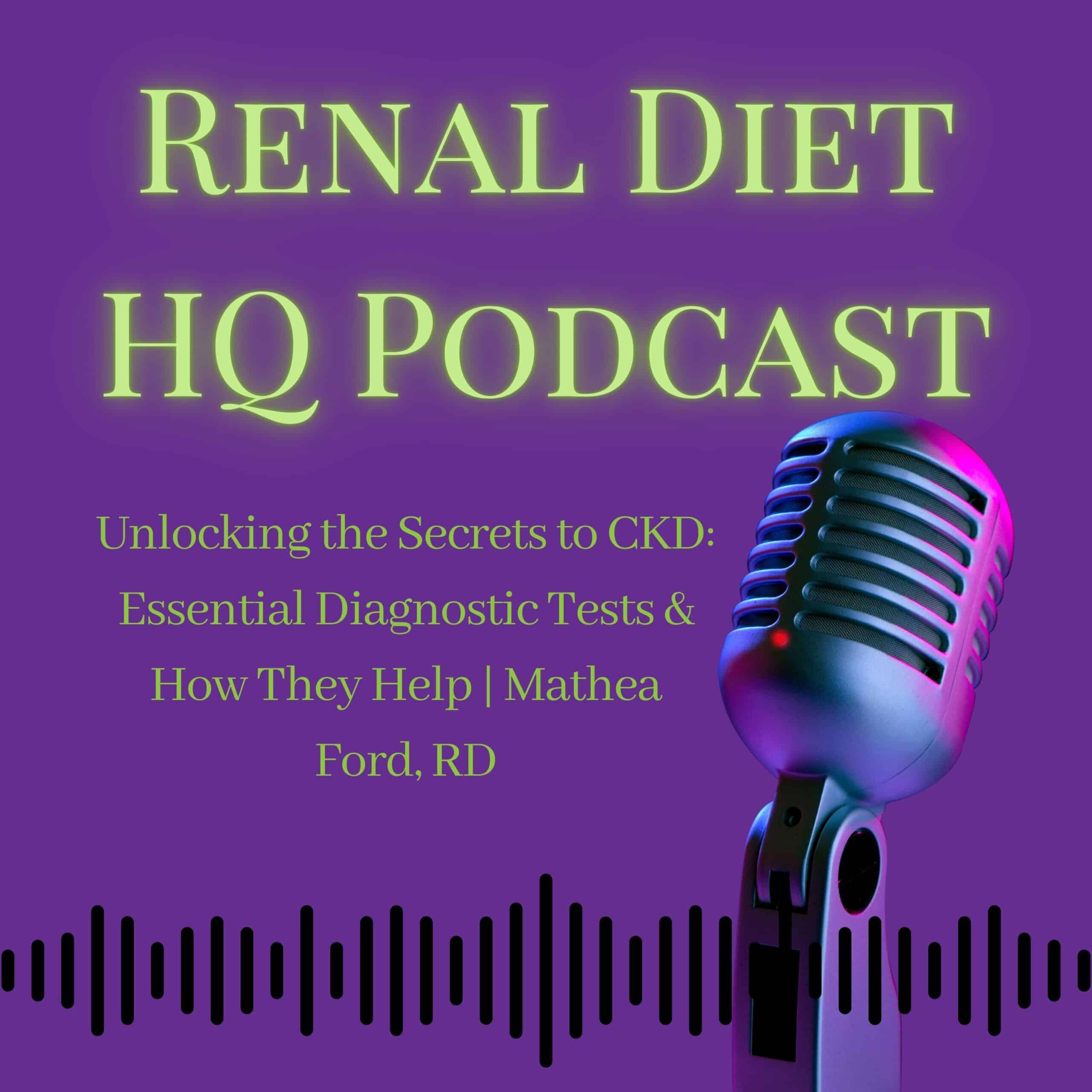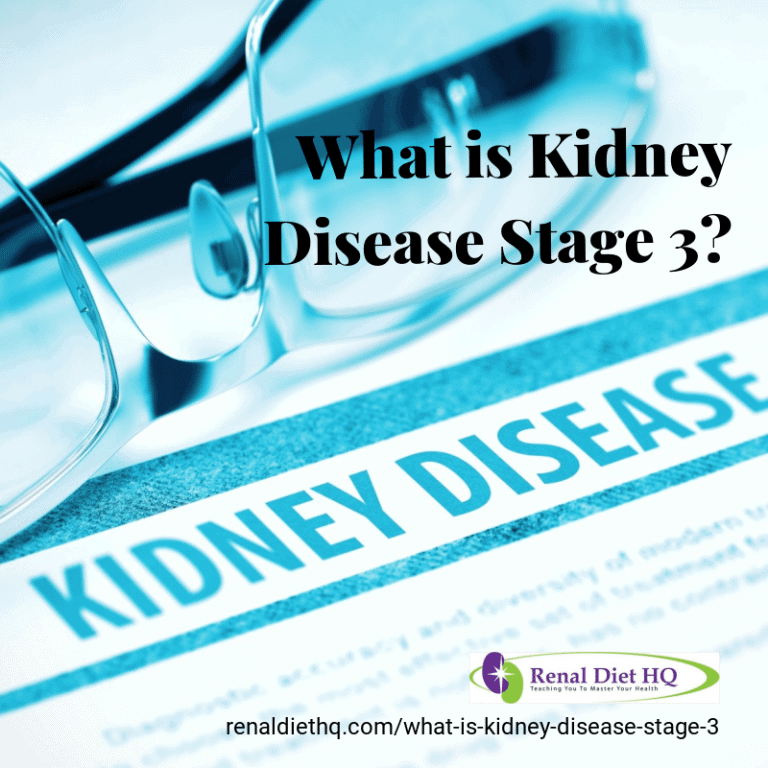Unlocking the Secrets to CKD: Essential Diagnostic Tests & How They Help Podcast
Podcast: Play in new window | Download

Chronic Kidney Disease (CKD) requires careful diagnosis and ongoing monitoring to manage effectively. In this blog post, we’ll explore the essential tests used for diagnosing CKD, how these tests help in monitoring the disease, and the importance of regular follow-ups. As a registered dietitian nutritionist specializing in CKD, I’m here to guide you through these crucial aspects and help you take proactive steps in managing your kidney health.
For More Recipes and Ideas --->> Get Your Free Meals and Recipes That Are Perfect for Pre-Dialysis Diets, Pre-Dialysis with Diabetes, or Dialysis Diets.
Estimated Filtration Rate (eGFR)
One of the most critical tests for assessing kidney function is the Estimated Filtration Rate (eGFR). This test measures how well your kidneys filter waste from your blood, providing a key indicator of kidney health. eGFR is calculated using a blood sample, and its results help diagnose CKD and monitor its progression. By tracking changes in eGFR, healthcare providers can assess how well your kidneys are functioning over time.
Urine Albumin Test
The urine albumin test is another vital tool for diagnosing CKD. This test measures the amount of albumin, a protein, in your urine. Elevated levels of albumin can indicate kidney damage, as healthy kidneys usually prevent large amounts of protein from leaking into the urine. Monitoring urine albumin levels helps in determining the stage of CKD and assessing the effectiveness of ongoing treatment.
Blood and Urine Tests
In addition to eGFR and urine albumin tests, various other blood and urine tests are used to evaluate kidney function. These tests help identify abnormalities and track the progression of CKD. Regular testing is essential for maintaining kidney health and enabling timely interventions to manage the disease.
Additional Diagnostic Tools
Kidney Biopsy
A kidney biopsy is an invasive procedure where a small sample of kidney tissue is taken for examination under a microscope. This test helps identify the cause of kidney damage and assess its extent, such as scarring or inflammation. Biopsies are often performed when the cause of CKD is unclear or to guide treatment decisions. The results can provide valuable insights into the underlying issues affecting kidney health.
Imaging Studies
Imaging studies like ultrasound, CT scans, and MRIs are used to visualize the kidney's structure and detect any abnormalities such as cysts, tumors, or obstructions. These techniques help healthcare providers understand the physical condition of the kidneys and make informed decisions about further diagnostic or treatment options.
Importance of Regular Monitoring
Early Detection of Kidney Function Changes
Regular monitoring of kidney function is crucial for early detection of any changes. Even minor abnormalities in blood and urine tests can indicate potential kidney dysfunction. By identifying these issues early, healthcare providers can implement prompt interventions and lifestyle modifications to address any problems before they escalate.
Adjusting Treatment Plans
Monitoring kidney function helps healthcare providers adjust treatment plans for conditions like diabetes and hypertension. Close monitoring ensures that blood pressure and blood sugar levels are well controlled, reducing the risk of further kidney damage. Regular follow-ups allow for timely adjustments to medications and treatments, optimizing management of CKD.
Preventing CKD Progression
Regular checkups are essential for preventing the progression of CKD. They help track the rate of kidney function decline and enable dietitians to recommend necessary dietary changes, medications, and lifestyle modifications. These proactive steps can slow down the progression of the disease and improve overall kidney health.
Individualized Care Plans
Every patient with CKD has unique needs, and regular follow-ups allow for the development of individualized care plans. Tailoring care to each patient’s specific condition and lifestyle ensures that treatment is effective and aligned with their personal health goals.
Accurate diagnosis and regular monitoring are crucial for managing Chronic Kidney Disease. Essential tests like eGFR and urine albumin, along with additional diagnostic tools such as kidney biopsies and imaging studies, provide a comprehensive picture of kidney health. Regular follow-ups with healthcare professionals help detect changes early, adjust treatment plans, and prevent disease progression.
For more information and personalized support in managing CKD, visit Renal Diet HQ. Together, we can take proactive steps towards a healthier and more vibrant life.
Learn more about What I wish I Knew Earlier: Symptom Subtlety-Podcast
Learn more abou What I Wish I Knew Earlier Fluid Intake Balance










